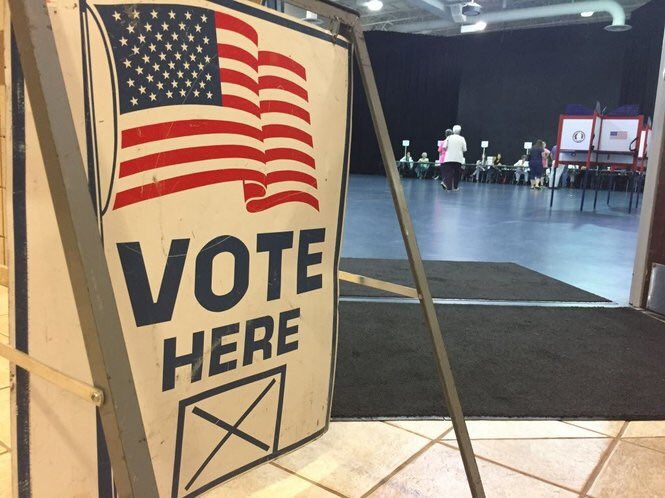- 14 3402-5578
- Rua Hygino Muzy Filho, 737, MARÍLIA - SP
- contato@latinoobservatory.org
 https://votolatino.org/
https://votolatino.org/
With the growing demographic influence of Latinos in the United States and with the Latino population constantly increasing, consequently, an increase in the number of eligible voters is also estimated. According to the organization “Voto Latino”, there will be 4.1 million eligible Latino voters in 2024 who were not eligible in 2020.
According to data from the Pew Research Center's July report, about 34.5 million Latinos/Hispanics are expected to vote in the upcoming elections, representing more than 14% of the electorate. However, despite this growth, historically, Latinos have voted at lower levels compared to other groups.
Voto Latino seeks to address this issue by focusing its efforts on educating younger generations to increase the number of registered voters.
In an interview conducted by Latin Times with Ameer Patel, the organization’s Director General of Civic Engagement, he highlights Voto Latino's main goals for the next election cycle. This includes registering voters, providing education about the electoral process, information on relevant issues, and encouraging active participation in elections.
Patel notes that challenges to increasing Latino voter turnout include the higher likelihood of being first-generation voters, the younger age compared to other ethnic groups, and the lack of contact on the part of political campaigns. The organization plans to invest in five key states: Arizona, Nevada, Texas, North Carolina, and Pennsylvania.
[...] the average Latino voter is significantly younger than Black, Asian and White voters. And we know that young people tend to vote less than older people. That is something we believe might change. For example, the largest share of Latino voters in Arizona in 2020 were 18 to 29 years old. The last part is that even though Latinos are the second largest voting bloc in this country, a large proportion of Latinos say they weren't contacted by the campaigns to get them to vote. The figure might vary depending on the election, but it's been even higher than 60 percent”.
When asked about the differences between Latino communities, Patel highlights the ethnic and cultural diversity within this group, emphasizing the importance of culturally competent approaches.
“Voto Latino started in 2004. It was the heyday of social media. Myspace was still a thing, MTV too. A lot of what it did was working with Rosario Dawson, Wilmer Valderrama and other celebrities to do PSAs and promote voting. It was an effective way. You created content and had celebrities talk about them when they went on shows”.
In this sense, he highlights Voto Latino’s current so-called “digital first” strategy, recognizing that young people spend more time online, and highlights the change in strategies over time, including the use of micro-influencers to reach smaller audiences in a more direct way.
“Now we have micro influencers who have just as much sway. We also partner with them to create content about voting. It's not just A-list celebrities anymore. You have micro influencers with millions of followers and are able to create content in an organic way and talk to the community about its importance. We are able to talk more directly to smaller audiences as opposed to the large PSA style. A lot has changed and a lot will change in the next four to six years”.
When asked what issues he would focus on to talk
to someone younger, Patel replied that “for older Latinos what we learned that,
overall, immigration was not a top three issue. However, for young Latino
voters it was. There are a lot of reasons as to why that could be. They could
have friends that are undocumented or mixed status or they could be living in mixed
up households themselves. It's about trying to do immigration reform, trying to
bring in a more humane perspective in the process and celebrating their
immigrant roots. We also see them caring more about racial justice and climate
change”.











